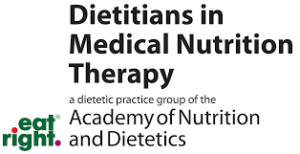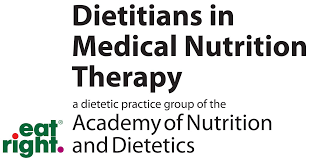What is a HAES® approach to nutrition?
Health At Every Size® (HAES®) is a weight-neutral approach to health, independent of weight.
The Association of Size Diversity and Health (ASDAH) defines it as, “… a continuously evolving alternative to the weight-centered approach to treating clients and patients of all sizes. It is also a movement working to promote size-acceptance, to end weight discrimination and to lesson the cultural obsession with weight loss and thinness.”
The HAES® principles
Accept and respect the inherent diversity of body shapes and sizes and reject the idealizing or pathologizing of specific weights.
Support health policies that improve and equalize access to information and services, and personal practices that improve human well-being, including attention to individual physical, economic, social, spiritual and emotional needs.
Acknowledge our biases, and work to end weight discrimination, weight stigma and weight bias.
Promote flexible, individualized eating based on hunger, satiety, nutritional needs, and pleasure, rather than any externally regulated eating plan focused on weight control.
Support physical activities that allow people of all sizes, abilities and interests to engage in joyful movement.
Problems with our current health care model
Weight-centered approach
Also called weight-normative, emphasis is placed on weight as a determinant of health. Weight loss is the number one prescribed treatment for poor health. There is a false belief that dieting and exercise will prevent, treat and cure all diseases.
Pathologizes body sizes
Weight is measured using the Body Mass Index (BMI) and categorized into groups; “underweight,” “normal,” “overweight” and “obese.” The term “obese” comes from the Latin to mean, “eaten itself fat.” The assumption is that fat bodies are that way due to overeating and doesn’t consider body diversity. To those who follow the HAES approach, the term “obese” is offensive. Instead, many activists have reclaimed the word, “fat” to be a descriptor, such as “muscular” or “tall.” Some also use the phrase, “in a bigger body.”
Health risks of weight-centered health care
Weight cycling
Also called yo-yo dieting, is the losing and gaining of weight over many attempts to become “healthy.” Attempts to lose weight are more common amongst those labeled “obese.” Weight cycling increases inflammation, and inflammation increases the risk of many diseases, most notably heart diseases. It also increases emotional distress and maladaptive and disordered eating behaviors, which can lead to GI issues and Binge Eating Disorder. In addition, weight cycling is a predictor of future weight gain.
Weight stigma
Weight stigma is defined as “negative weight related attitudes and beliefs that manifest as stereotypes, rejection, prejudice and discrimination towards individuals of higher weights.” Examples include weight-related bullying, lack of appropriately sized equipment (i.e., blood pressure cuffs) and armless seating in the waiting or exam rooms at health care visits, public health messaging (i.e., the “war on obesity” or the “obesity epidemic”) and being denied joint surgery because of anesthesia risk, but offered bariatric surgery (where anesthesia is used).
Missed diagnoses
When weight is the focus, the true underlying condition can be missed, especially for people who are in bigger bodies.
Reduced participation in health behaviors
When “diet and exercise” are prescribed and weight loss is not achieved or sustained, the health behaviors that can improve health markers cease.
How a weight-neutral approach to health can help manage GI conditions
Eat in a flexible manner that values pleasure and honors internal cues of hunger, satiety and appetite; GI conditions can be managed better when restrictive eating is not practiced.
Pay attention to what foods trigger your symptoms and avoid them if they cause your body harm (i.e., gluten in celiac disease)
Find the joy in moving your body and becoming more physically vital.
Accept and respect the natural diversity of body sizes and shapes.
Advocate for yourself when visiting health care providers; decline to be weighed, ask for accommodating gowns, equipment and seating, and ask what treatment would be prescribed to someone in a thin body if you are told to diet and exercise.
Every body is capable of achieving health and well-being, independent of weight (should they choose to do so), given equitable access to non-stigmatizing health care.
Resources
- Association For Size Diversity and Health (www.ASDAH.org)
- Body Respect by Linda Bacon, PhD and Lucy Aphramor, PhD, RD
- Intuitive Eating, 4th ed by Evelyn Tribole, MS, RDN, CEDRD-S and Elyse Resch, MS, RDN, CEDRD-S, FAND
- Anti-Diet: Reclaim Your Time, Money, Well-Being, and Happiness Through Intuitive Eating by Christy Harrison, MPH, RD
Written by

Beth Rosen MS, RD, CDN
Reviewed by the DIGID Disordered Eating in GI Workgroup ©2021

Beth Rosen MS, RD, CDN
Reviewed by the DIGID Disordered Eating in GI Workgroup ©2021




